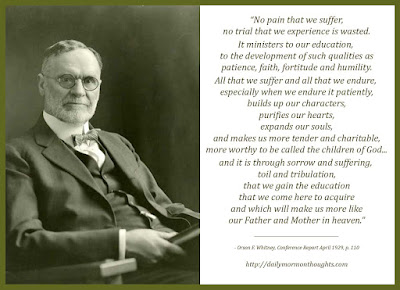"Numerous leisure hours have been made available to men. It is noticeable that many use these extra hours for fun and pleasure. Certainly an increased part of it could profitably be used for gaining knowledge and culture through the reading of good books.
"Numerous people fail to take advantage of these opportunities. Many people spend hours in planes with only cursory glancing at magazines, and in the train or bus, time is spent 'sitting and thinking,' and in many cases, 'just sitting,' when there could be such a constructive program of reading. People in beauty parlors, professional offices, waiting rooms, and elsewhere waste precious hours thumbing through outdated magazines when much valuable reading could be done in these islands of time.... Even in the beginning there was the written word, for Adam and Eve were conscious of the need for the development of the mind, 'And by them their children were taught to read and write, having a language which was pure and undefiled.' (Moses 6:6.)"
- Spencer W. Kimball, "The Power of Books", R.S. Magazine October 1963, p. 724; see TSWK p. 383
I always loved President Kimball's straight-forward approach to offering counsel on practical matters. In this example, he notes the blessing we enjoy in our modern society of "numerous leisure hours" compared to the lifestyle of times past. But the worry about using that time appropriately is a real one, and President Kimball encourages more active reading as one of the best uses in lieu of too much "fun and pleasure."
President Kimball and his wife Camilla were both wonderful examples of this principle. They both were well-read and clearly knew how to take advantage of their leisure time in productive ways. What a great example of life-long learning! In the years since he shared these thoughts in 1963, so many more things have arisen that compete for those precious leisure hours. It's even more critical that we be cautious about their use.
(Compilation and commentary by David Kenison, Orem, Utah, 2022)
July 14, 2015
July 14, 2015


























